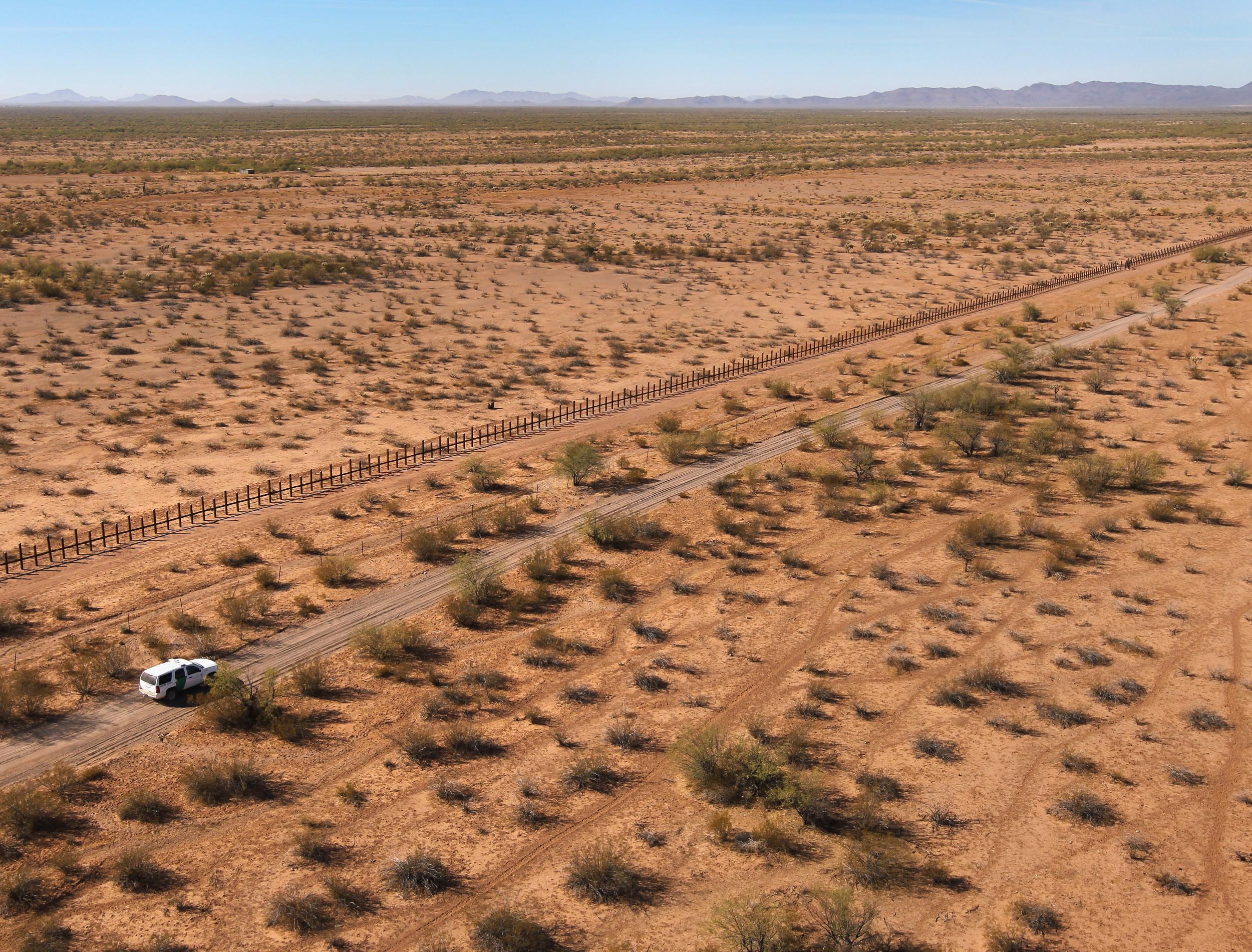Native American tribe vows to stop Donald Trump building Mexican border wall on their Arizona reservation
The Tohono O'odham Nation say they have already suffered for decades at the hands of US border agents

Your support helps us to tell the story
From reproductive rights to climate change to Big Tech, The Independent is on the ground when the story is developing. Whether it's investigating the financials of Elon Musk's pro-Trump PAC or producing our latest documentary, 'The A Word', which shines a light on the American women fighting for reproductive rights, we know how important it is to parse out the facts from the messaging.
At such a critical moment in US history, we need reporters on the ground. Your donation allows us to keep sending journalists to speak to both sides of the story.
The Independent is trusted by Americans across the entire political spectrum. And unlike many other quality news outlets, we choose not to lock Americans out of our reporting and analysis with paywalls. We believe quality journalism should be available to everyone, paid for by those who can afford it.
Your support makes all the difference.An indigenous tribe in Arizona has said it will not let Donald Trump build a border wall on its land.
The Tohono O’odham Nation, a federally recognised tribe with a reservation that spans 75 miles along the US-Mexico border, said on Thursday that it does not support the proposed wall and will attempt to block construction if it goes ahead.
In a statement it criticised the White House for signing an executive order without consulting the tribe, and hinted at Standing Rock-style mass resistance if necessary. The tribal vice-chairman has previously said the government could build the wall “over my dead body”.
The tribe, which has about 28,000 members, said it has suffered for decades from the "militarisation" of the international border, which cuts across its ancestral lands. Members have said they are frequently assaulted or threatened by border guards and impeded in visiting relatives south of the border.
The reserve is meant to operate as an autonomous territory, but in practice people living there say they are afraid to hunt on their own land or even let their children ride the bus to school because of harassment by security agents. They said in the statement that they are routinely stopped from “simply travelling through their own traditional lands, practicing migratory traditions essential to their religion, economy and culture”.
The Tohono O'odham Nation occupies the second largest Native American base in the country and has so far spoken out the loudest in opposition to the wall, but it is possible other tribes which span the border will also refuse to let Mr Trump build on their territory.
The Kumeyaay in California and the Kickapoo in Texas, as well as the Cocopah, also in Arizona, all occupy land spanning the US and Mexico. Representatives of all these tribe have gathered together in the past to discuss tactics to oppose border security, with several indigenous leaders saying the militarisation and occupation of indigenous lands is in direct violation of their right to economic, political, social, and cultural control of their lands.
Tribe member Bradley Moreno, 35, told the Guardian there is already a steel barrier at the border, but if a wall is built, the results would be disastrous.
“It’s going to affect our sacred lands. It’s going to affect our ceremonial sites. It’s going to affect the environment. We have wildlife, and they have their own patterns of migration,” he said. “There are just so many things that are wrong with this. The whole idea behind it is just racist.”
It remains unclear how Congress intends to finance construction of the wall. Mr Trump initially claimed that Mexico would be forced to pick up the bill, but recently he suggested instead that he would place an additional tax on all goods imported from Mexico to raise funds– outraging Americans who like tequila and avocados.
However the legal challenge Mr Trump could face if he attempted to build a wall on Tohono O’odham land without the tribe's permission could pose an even larger problem than finding the money.
“He is going to have a very serious and prolonged battle with the O’odham people,” said Raul Grijalva, a Democratic congressman from Arizona, speaking to the Guardian. “They know what’s at stake is their sovereignty.”
Even if Mr Trump won a legal battle, he would face a fight on the ground. Mr Moreno said people were already discussing strategies for “direct action”.
Audra Antone, who lives in the state’s Gila River Indian Community and whose family is O’odham, told the Guardian if the government tried to start construction, large protests like at Standing Rock could emerge.
“It’s divide and conquer again. We need to stand our ground as Native American people,” said Ms Antone. “We’re going backward if we do not stand up and fight.”
Subscribe to Independent Premium to bookmark this article
Want to bookmark your favourite articles and stories to read or reference later? Start your Independent Premium subscription today.
Join our commenting forum
Join thought-provoking conversations, follow other Independent readers and see their replies
Comments